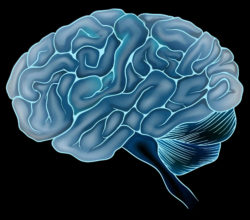 Dilantin (phenytoin) has been linked to a number of different serious drug side effects including cerebral and cerebellar atrophy, both of which are serious neurological conditions.
Dilantin (phenytoin) has been linked to a number of different serious drug side effects including cerebral and cerebellar atrophy, both of which are serious neurological conditions.
Recent studies have shown that Dilantin may cause damage to the cerebellum, which can result in cerebral and cerebellar atrophy.
Cerebral and cerebellar atrophy can cause difficulties in movement and speech which have been linked to both acute and chronic Dilantin exposure. Cerebral atrophy is a condition in which the brain shrinks and loses neurological connections and is often a symptom of degenerative diseases like Alzheimer’s or traumatic brain injury.
Cerebellar atrophy is also a condition that involves the brain shrinking, but specifically pertains to the cerebellum. Cerebellar atrophy occurs when the cerebellum loses neurological connections in the cerebellum, the part of the brain which is responsible for voluntary movements.
The cerebellum sits under the cerebrum, which is divided into two hemispheres. Any damage to this part of the brain causes issues with balance, coordination and speech. Both cerebral and cerebellar atrophy can produce symptoms often associated with stroke. Symptoms include:
- Unsteady or lurching walking gait
- Slow, unsteady, or jerky movements in arms or legs
- Slow or slurred speech
- Nystagmus (small rapid eye movements)
- Memory loss
The correlation between Dilantin and cerebral and cerebellar atrophy was first noticed in a 1994 study which was conducted to observe how Dilantin effects the brain during the treatment process.
During the study, it was noticed that patients who were prescribed phenytoin medications had significantly smaller cerebelli compared to other patients. Several studies have been conducted since then, with the FDA ordering that cerebellar atrophy be added to Dilantin’s warning label.
Overview of Dilantin Side Effects
Dilantin first entered the market in the 1950s and was typically prescribed to treat adult patients suffering from different forms of epilepsy. Dilantin works by slowing down the brain’s electrical activity, which prevents the onset of seizures.
Even though Dilantin has helped numerous patients, recent inquiries have indicated this medication has been linked to several serious side effects including cerebral and cerebellar atrophy.
Another study observing a correlation between Dilantin and cerebellar atrophy was published in 2003, with researchers finding that moderate to severe cerebral damage was linked to long term phenytoin exposure.
Other studies have also found that children may be at risk for cerebellar atrophy if prescribed Dilantin sodium.
In addition to the studies, the FDA approved changes to the drug’s warning label to include cerebellar atrophy. According to the FDA, cases of cerebellar atrophy was reported in Dilantin patients which spurred the label change.
At this point, it is unknown why phenytoin’s treatment mechanism may be causing cerebral or cerebellar atrophy. However, drug toxicity has been known to be a contributing factor that could increase the chances of either condition developing.
Even though these conditions can cause serious brain damage, Pfizer may not have provided adequate warnings about cerebral and cerebellar atrophy. Dilantin patients who developed either cerebral or cerebellar atrophy can potentially file legal action against Pfizer to seek compensation for medical damages.
In general, phenytoin lawsuits are filed individually by each plaintiff and are not class actions.
Do YOU have a legal claim? Fill out the form on this page now for a free, immediate, and confidential case evaluation. The attorneys who work with Top Class Actions will contact you if you qualify to let you know if an individual Dilantin lawsuit or Dilantin class action lawsuit is best for you. Hurry — statutes of limitations may apply.
ATTORNEY ADVERTISING
Top Class Actions is a Proud Member of the American Bar Association
LEGAL INFORMATION IS NOT LEGAL ADVICE
Top Class Actions Legal Statement
©2008 – 2026 Top Class Actions® LLC
Various Trademarks held by their respective owners
This website is not intended for viewing or usage by European Union citizens.
Get Help – It’s Free
Join a Free Dilantin, Phenytoin Cerebral Atrophy Class Action Lawsuit Investigation
If you or a loved one were injured by Dilantin/phenytoin side effects, you may have a legal claim. Fill out the form for a free case evaluation.
An attorney will contact you if you qualify to discuss the details of your potential case.
PLEASE NOTE: If you want to participate in this investigation, it is imperative that you reply to the law firm if they call or email you. Failing to do so may result in you not getting signed up as a client or getting you dropped as a client.
Oops! We could not locate your form.












